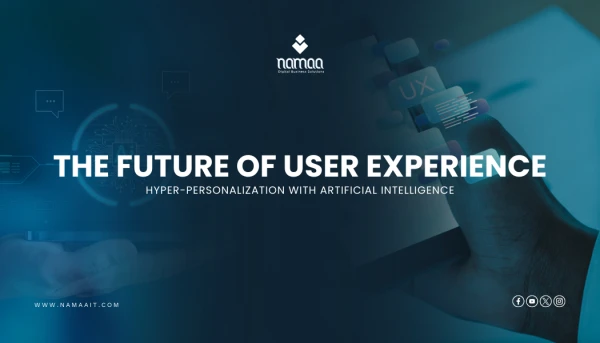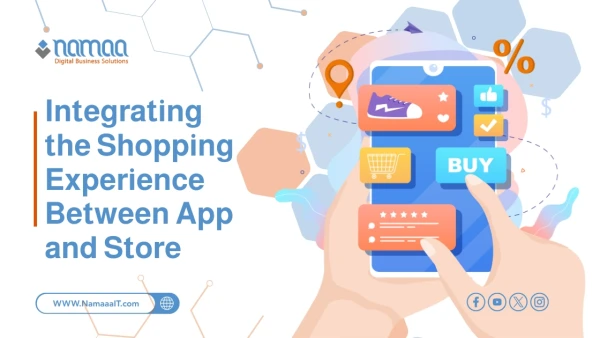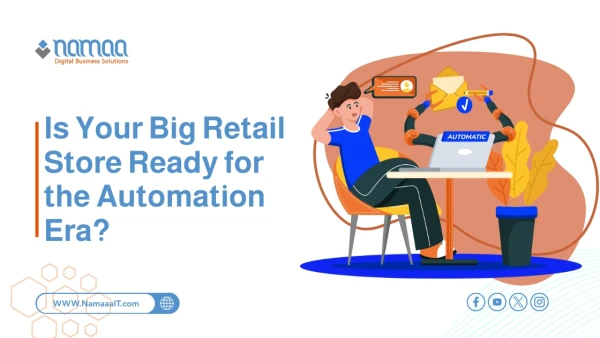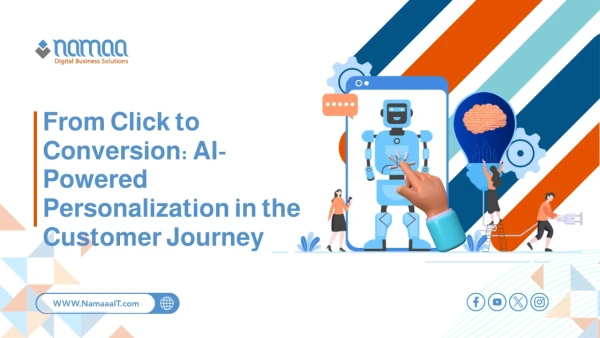he Gulf region is witnessing a remarkable shift toward personalization across various sectors—from custom-formulated cosmetics tailored to each client’s skin type, to grocery stores allowing you to curate your basket based on health needs and personal preferences. Consumers in the Gulf no longer settle for one-size-fits-all products; they now seek options that are uniquely designed for them. This trend reflects a blend of growing consumer awareness, technological advancement, and fierce competition among brands aiming to deliver more intimate and distinctive experiences. In this article, we explore how personalization is reshaping the Gulf market, what's driving it, and where it’s headed.
Why Do Gulf Consumers Prefer Personalized Products?
In recent years, Gulf consumers’ tastes have evolved significantly. They no longer gravitate toward generic products; instead, they seek items that reflect their individual needs and personality. This shift toward personalization is fueled by several factors:
- Desire for Uniqueness: Gulf consumers value the exclusivity of personalized products as symbols of sophistication and refined taste.
- Quality and Fit: Customized items—whether skin care creams or signature fragrances—better accommodate personal health and beauty requirements.
- Cultural Shift: With increased openness and awareness, consumers now demand more tailored offerings.
- Technological Support: Online personalization tools have made customization accessible and convenient.
This change reflects a maturing market and cut‑throat brand competition, with personalization seen as a way to build trust and long-term loyalty. We can expect this trend to expand into new sectors soon.
Smart Shopping via Mobile Applications
Smart shopping apps have made personalized retail experiences possible with just a few taps. Gulf consumers can now complete a customized shopping journey from browsing to checkout—all on mobile. These apps feature:
- Data Analysis: Aggregating user data to offer accurate recommendations based on purchase behavior.
- Real-Time Interaction: Allowing users to tweak orders or add personal specifications before finalizing.
- Customized Offers: Sending promotions and discounts tailored to each user’s preferences.
- Multichannel Support: Integrating with social platforms to extend customer engagement and reach.
Brands constantly upgrade their apps to meet rising consumer expectations, ensuring smooth navigation, multiple payment options, and direct access to support. Today, personalization is not just an option—it's a core element of marketing and growth strategies in the Gulf.
Personalization Trends in the Gulf
The Gulf market’s embrace of personalization now spans products and services that were once untouched. This trend can be grouped into two main tracks:
- Personalized Beauty & Care Products
Brands—both global and local—are offering custom formulations for skin and hair care based on client data such as skin type and health concerns. This encourages customers to trust these bespoke products. - Personalized Daily Services and Goods
Even grocery retailers are adopting personalization by offering:- Healthy shopping baskets tailored to dietary needs,
- Weekly shopping lists aligned with budgets and priorities,
- Subscription-based deliveries of curated products.
This widespread approach reflects Gulf consumers’ evolving health and cultural awareness and drives businesses toward faster, more flexible solutions. In a fiercely competitive market, further innovations are expected soon.
Challenges in Protecting Personalization Data
Despite its many benefits, personalization in the Gulf faces critical user‑privacy challenges. Personalization relies heavily on collecting and analyzing large amounts of personal data, raising concerns such as:
- Data Breaches: Risks of unauthorized access or third‑party data sales.
- Misuse: Data may be used for intrusive marketing or opaque behavioral targeting.
- Lack of Awareness: Many users don’t realize how much data they share.
- Weak Regulations: Gulf-region data protection laws are still evolving.
Companies must adopt strict security protocols, deploy transparent and accessible privacy policies, and educate customers on their rights. Only then can the balance between personalization and privacy be achieved.
How Brands Deliver Personalized Experiences
Gulf brands use integrated strategies combining technology, creativity, and deep customer insight to deliver personalization. The following table illustrates key components:
| Element | Explanation |
|---|---|
| Data Analysis | Monitoring purchase and behavior data across digital channels |
| Content Personalization | Crafting ads and messages tailored to specific consumer segments |
| Product Innovation | Developing flexible products that users can customize |
| Seamless UX | Designing intuitive web/app interfaces to facilitate personalization |
| Post-Purchase Support | Providing after-sales service that respects customer privacy and ongoing needs |
Through these strategies, brands build not just a product offering but meaningful, long-term relationships with their customers. Personalization is no longer just a marketing flourish—it’s essential for success in a competitive Gulf market.
Where Personalization in the Gulf Is Headed
Personalization in the Gulf is accelerating thanks to smarter technologies and more informed consumers. In the near future it is expected to expand into daily life beyond luxury and beauty into areas like food, education, and entertainment. Key future trends include:
- Comprehensive Personalization: Extending tailored experiences across the entire customer journey—from browsing to post-purchase.
- AI‑Driven Insight: Relying more on AI tools to anticipate needs and deliver real-time suggestions.
- Augmented Reality: Using AR to let customers virtually try products before purchasing.
- Smart Subscriptions: Monthly automated shipments of personalized items—no repeated browsing required.
- Tighter Regulations: As personalization grows, expect stricter data protection laws.
In summary, personalization in the Gulf is not a luxury—it will become a fundamental standard for business competitiveness and customer retention. Brands that ignore it risk falling behind.
Frequently Asked Questions
1) Is personalization in the Gulf limited to beauty?
No—sectors like healthcare also lean toward personalization, including DNA-based tests, tailored diet plans, and genome-based medications, enhancing treatment outcomes and reducing long-term costs.
2) What role do social media platforms play in personalization?
Social media plays a significant role by collecting precise data on user interests and behaviors. Companies use this data to design personalized marketing campaigns and product offerings aligned with actual consumer preferences.
3) How does personalization contribute to environmental sustainability?
Personalization reduces waste by producing items on demand instead of in bulk. Custom apparel lowers unsold inventory; curated grocery baskets decrease food spoilage—balancing profitability with environmental responsibility.
4) Is personalization appealing to all age groups?
While younger generations (Gen Z) are most engaged, older consumers are increasingly embracing personalization—especially in sectors like healthcare and nutrition where tailored solutions meet specific needs.
5) How will personalization affect the workforce?
Growing personalization demands new skills in data analysis, customizable design, and specialized customer service. Personnel with combined technical and interpersonal abilities will be in high demand.
Summary
✅ Over 70% of Gulf consumers prefer personalized products because they align with their individual tastes and needs.
✅ 85% of major companies in the region have invested in intelligent apps that support real-time personalization.
✅ Customized beauty products have grown by 40% over the past three years in response to rising demand.
✅ More than 60% of consumers express concern about personal-data usage in personalization—prompting tighter regulations.
✅ Experts forecast that the Gulf personalization market will reach $15 billion by 2030, as it expands into sectors like health and education.

.webp)







